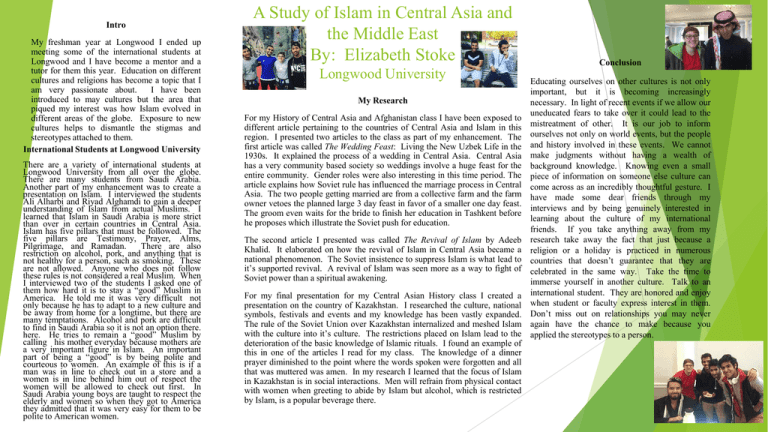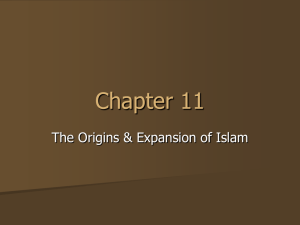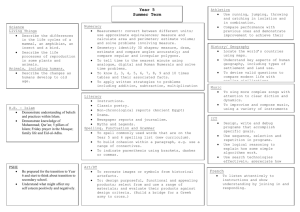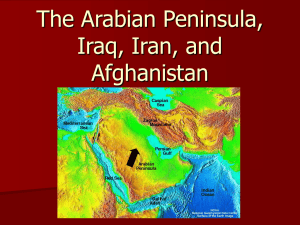- Longwood Blogs
advertisement

Intro My freshman year at Longwood I ended up meeting some of the international students at Longwood and I have become a mentor and a tutor for them this year. Education on different cultures and religions has become a topic that I am very passionate about. I have been introduced to may cultures but the area that piqued my interest was how Islam evolved in different areas of the globe. Exposure to new cultures helps to dismantle the stigmas and stereotypes attached to them. International Students at Longwood University There are a variety of international students at Longwood University from all over the globe. There are many students from Saudi Arabia. Another part of my enhancement was to create a presentation on Islam. I interviewed the students Ali Alharbi and Riyad Alghamdi to gain a deeper understanding of Islam from actual Muslims. I learned that Islam in Saudi Arabia is more strict than over in certain countries in Central Asia. Islam has five pillars that must be followed. The five pillars are Testimony, Prayer, Alms, Pilgrimage, and Ramadan. There are also restriction on alcohol, pork, and anything that is not healthy for a person, such as smoking. These are not allowed. Anyone who does not follow these rules is not considered a real Muslim. When I interviewed two of the students I asked one of them how hard it is to stay a “good” Muslim in America. He told me it was very difficult not only because he has to adapt to a new culture and be away from home for a longtime, but there are many temptations. Alcohol and pork are difficult to find in Saudi Arabia so it is not an option there. here. He tries to remain a “good” Muslim by calling his mother everyday because mothers are a very important figure in Islam. An important part of being a “good” is by being polite and courteous to women. An example of this is if a man was in line to check out in a store and a women is in line behind him out of respect the women will be allowed to check out first. In Saudi Arabia young boys are taught to respect the elderly and women so when they got to America they admitted that it was very easy for them to be polite to American women. A Study of Islam in Central Asia and the Middle East By: Elizabeth Stoke Longwood University My Research For my History of Central Asia and Afghanistan class I have been exposed to different article pertaining to the countries of Central Asia and Islam in this region. I presented two articles to the class as part of my enhancement. The first article was called The Wedding Feast: Living the New Uzbek Life in the 1930s. It explained the process of a wedding in Central Asia. Central Asia has a very community based society so weddings involve a huge feast for the entire community. Gender roles were also interesting in this time period. The article explains how Soviet rule has influenced the marriage process in Central Asia. The two people getting married are from a collective farm and the farm owner vetoes the planned large 3 day feast in favor of a smaller one day feast. The groom even waits for the bride to finish her education in Tashkent before he proposes which illustrate the Soviet push for education. The second article I presented was called The Revival of Islam by Adeeb Khalid. It elaborated on how the revival of Islam in Central Asia became a national phenomenon. The Soviet insistence to suppress Islam is what lead to it’s supported revival. A revival of Islam was seen more as a way to fight of Soviet power than a spiritual awakening. For my final presentation for my Central Asian History class I created a presentation on the country of Kazakhstan. I researched the culture, national symbols, festivals and events and my knowledge has been vastly expanded. The rule of the Soviet Union over Kazakhstan internalized and meshed Islam with the culture into it’s culture. The restrictions placed on Islam lead to the deterioration of the basic knowledge of Islamic rituals. I found an example of this in one of the articles I read for my class. The knowledge of a dinner prayer diminished to the point where the words spoken were forgotten and all that was muttered was amen. In my research I learned that the focus of Islam in Kazakhstan is in social interactions. Men will refrain from physical contact with women when greeting to abide by Islam but alcohol, which is restricted by Islam, is a popular beverage there. Conclusion Educating ourselves on other cultures is not only important, but it is becoming increasingly necessary. In light of recent events if we allow our uneducated fears to take over it could lead to the mistreatment of other. It is our job to inform ourselves not only on world events, but the people and history involved in these events. We cannot make judgments without having a wealth of background knowledge. Knowing even a small piece of information on someone else culture can come across as an incredibly thoughtful gesture. I have made some dear friends through my interviews and by being genuinely interested in learning about the culture of my international friends. If you take anything away from my research take away the fact that just because a religion or a holiday is practiced in numerous countries that doesn’t guarantee that they are celebrated in the same way. Take the time to immerse yourself in another culture. Talk to an international student. They are honored and enjoy when student or faculty express interest in them. Don’t miss out on relationships you may never again have the chance to make because you applied the stereotypes to a person. Sources References About Saudi Arabia. (2015). Retrieved April 14, 2015, from http://www.saudiembassy.net/about/countryinformation/government/ Alghamdi, R. (2015, November 21). Understanding Islam. (E. Stoke, Interviewer) Alharbi, A. (2015, November 20). Understanding Islam. (E. Stoke, Interviewer) Alotaibi, F. (2015, November 30). Understanding Islam. (E. Stoke, Interviewer) Alsaif, M. (2015, April 10). Islam. (L. Stoke, Interviewer) Arabs in America. (n.d.). Retrieved April 9, 2015, from http://arabsinamerica.unc.edu/ Jeff Sahadeo, R. G. (2007). Everyday Life in Central Asia: Past and Present. Iniana University Press. Kargar, Z. (2012). Dear Zari. Naperville: Sourcebooks, Inc. Khalid, A. (2006). Islam after Communism. University of California Press. Life in Black: Why Do Women Wear the Abaya? (2012). Retrieved April 9, 2015, from https://echodepiction.wordpress.com Press, W. T. (2015, December 4). Holidays and Festivals. Retrieved from AtoZ The World: http://www.atoztheworld.com/







